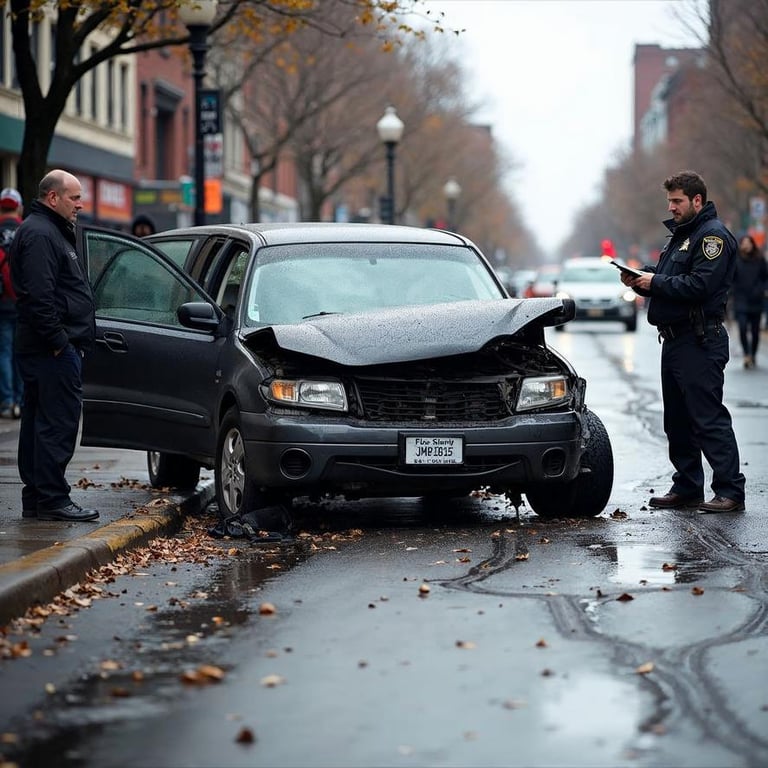
Unfortunately, based on your response, you may not qualify to file a claim. Most personal injury cases must be filed within two years of the accident, in accordance with the statute of limitations. Please consult with a licensed attorney to explore any possible exceptions or additional options.
Car crashes can be a stressful and overwhelming experience. If you are involved in a car crash in Madison, knowing what steps to take immediately afterwards can help protect your health and legal rights. This guide will walk you through the important actions to take following a collision in Madison to ensure you are prepared for any challenges that follow.
After a crash, your first priority should be safety. Check yourself and others for injuries. If anyone is hurt or the crash is severe, call emergency services immediately. Even if injuries seem minor, it’s advisable to get a medical evaluation because some symptoms may appear later.
In Madison, the law requires drivers involved in an accident to report it to the police if there are injuries, deaths, or property damage exceeding a certain amount. Having an official police report can be important for insurance claims. You can find specific reporting guidelines at the Understanding Rear-End Collisions in Madison Wisconsin article which explains how common types of collisions are handled and reported locally.
Collecting detailed evidence at the scene is crucial. Take photos of all vehicles involved from multiple angles, capture any visible damage, road conditions, traffic signs, and skid marks. Exchange contact and insurance information with other drivers. Also, gather contact info of any witnesses, which can be useful in supporting your claim. For more detailed guidance, refer to our page on What to Document After a Car Wreck: Essential Steps for Your Claim.
Promptly inform your insurance carrier about the accident, providing them with accurate and honest information about what happened. Failure to do so can result in claim delays or denials. Be cautious when speaking to insurance adjusters and avoid admitting fault. Instead, focus on providing facts and cooperating during the investigation.
Determining fault after a crash can be complicated. Wisconsin follows comparative negligence rules, meaning fault can be shared between parties. Understanding how negligence is assessed is key when pursuing compensation. For insights into fault determination and liability, the resource Factors That Influence Fault in Connecticut Car Accidents provides useful concepts that apply similarly in many states including Wisconsin.
If you have significant injuries or damages, getting medical attention is critical for your recovery and documentation. Additionally, consulting professionals who understand the claims process can help you navigate insurance challenges and ensure you receive appropriate compensation.
For additional safety tips and crash statistics, resources such as the National Highway Traffic Safety Administration provide authoritative information that can enhance your understanding of vehicle safety and common causes of crashes.
Being prepared on what to do after a car crash in Madison helps protect your health and legal rights. Prioritize safety, document thoroughly, report the accident properly, and understand your insurance and fault processes. Taking these steps ensures a smoother recovery and compensation process following a collision.
Unfortunately, based on your response, you may not qualify to file a claim. Most personal injury cases must be filed within two years of the accident, in accordance with the statute of limitations. Please consult with a licensed attorney to explore any possible exceptions or additional options.